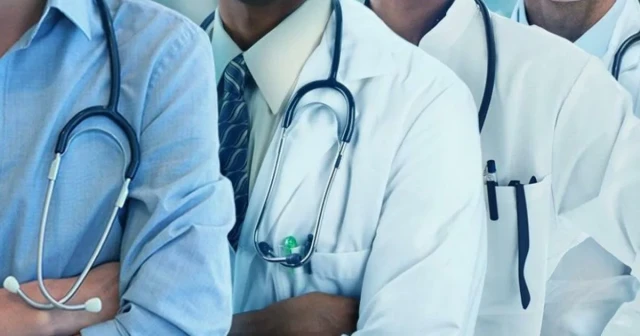The World Bank has granted Nigeria a total of $3.53 billion (N5.4 trillion at the official exchange rate of N1,535/$) in health-related loans over the last nine years.
However, various healthcare associations, including the Medical and Dental Consultants’ Association of Nigeria, the Nigerian Association of Resident Doctors, and the National Association of Nigerian Nurses and Midwives, along with health officials, contend that the significant funds allocated to healthcare infrastructure have not yielded visible improvements.
Industry operators emphasize that the country's health infrastructure remains inadequate and does not reflect the vast loans obtained from the global financial institution.
A review of the World Bank’s official project records shows that from 2016 to 2025, at least 11 major health sector projects received a combined funding of $3.527 billion in loans and an extra $111.29 million in grants, bringing the total World Bank financial commitment for health interventions in Nigeria during this time to roughly $3.64 billion.
Moreover, it is noted that an additional $250 million health-related loan is expected to be approved for Nigeria in September, increasing the total for health sector loans and grants to approximately $3.89 billion.
This funding, which spans multiple health initiatives, has primarily been directed through federal organizations such as the Federal Ministry of Health and the Nigeria Centre for Disease Control.
The financial aid aims to enhance immunization, maternal and child health, nutrition, pandemic preparedness, and primary healthcare services across numerous states.
Data indicate that most of the funding was secured between 2018 and 2024, with a notable increase occurring post-COVID-19 pandemic.
Healthcare professionals and officials claim that despite the financial commitment to healthcare infrastructure, tangible results are lacking. Dr. Tope Osundara, President of the Nigerian Association of Resident Doctors, pointed out the persistent issues with health infrastructure and inadequate power supply, stating, “When examining the World Bank's financial inflow into our healthcare, the tangible outcomes are disappointing.”
Osundara urged the government to manage the loans wisely, preventing diversion of funds.
He advocated for better oversight of financial resources tied to health initiatives and for strengthening Nigeria's health system to effectively use these loans for emergency responses and collaboration with relevant stakeholders.
The President of the Medical and Dental Consultants’ Association of Nigeria, Prof Muhammad Muhammad, expressed disappointment regarding the training and availability of medical personnel, calling the impact of World Bank loans on medical support subpar in relation to the funds received. To achieve better outcomes, he recommended involving frontline healthcare workers in identifying critical needs before utilizing funds.
The Public Relations Officer of the National Association of Nigerian Nurses and Midwives – Federal Health Institutions Sector, Omomo Tibiebi, echoed concerns over the challenges facing Nigeria's health infrastructure despite the substantial loans, highlighting that government expenditure on healthcare is low, leading to poor health outcomes.
Despite the World Bank’s efforts to bolster Nigeria's healthcare system, Tibiebi noted obstacles such as slow fund disbursement and a lack of significant progress. "As of July 31, 2024, only 16% of approved loans had been disbursed," he explained, emphasizing the need for timely project implementation and community engagement in health awareness.
In 2020, the World Bank allocated $500 million for the Nigeria COVID-19 Preparedness and Response Project and another $750 million for Additional Financing for COVID-19 Response. These COVID-19 projects together accumulated $1.65 billion, nearly half of Nigeria's total health-related loans from the Bank over nine years.
Other significant projects during this period included the Improved Child Survival Programme and the Primary Healthcare Provision Strengthening Programme. Various loans also came with grants aimed at improving healthcare services, particularly for vulnerable populations.
As the Nigeria government seeks more external support to revamp its health sector, crucial attention is shifting towards ensuring sustainability, transparency, and value for the funds utilized in addressing ongoing healthcare challenges.
Data indicated that Nigerians spent around $29.29 billion on overseas medical care during the past eight years, reflecting a reliance on foreign healthcare services despite governmental efforts to enhance local healthcare delivery.
Health officials from various states have expressed mixed reviews on the impact of the World Bank’s interventions. While some acknowledge the positive contributions, others lament that the funds have not resulted in substantial improvements, reiterating the need to focus resources on a few flagship healthcare projects to create centers that meet international standards.




















